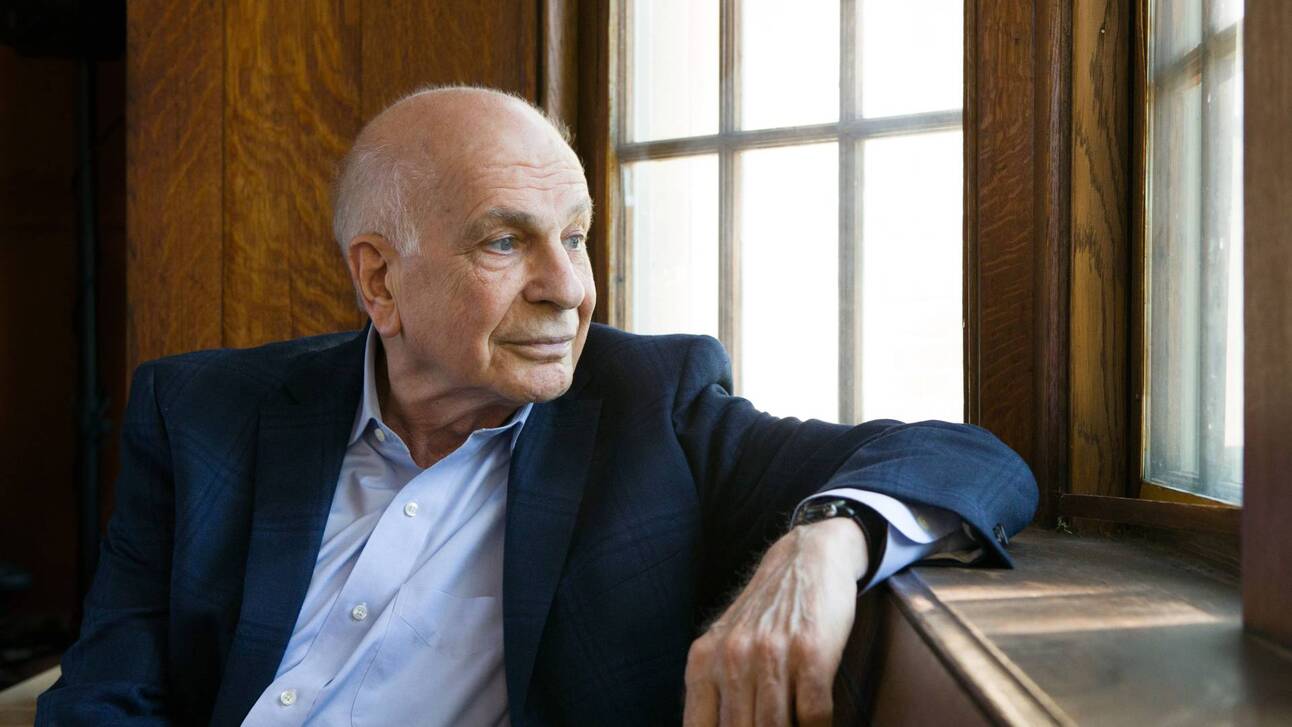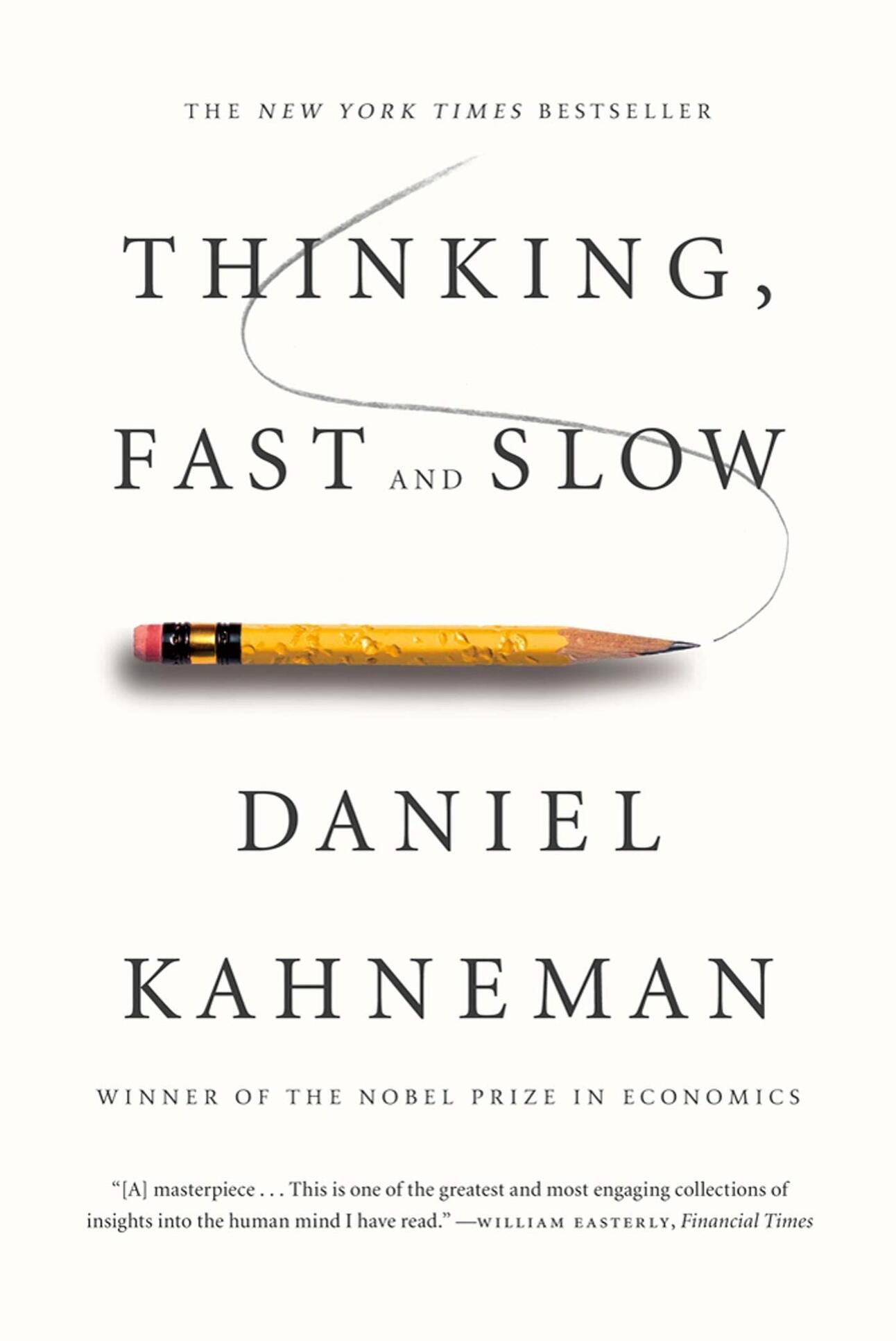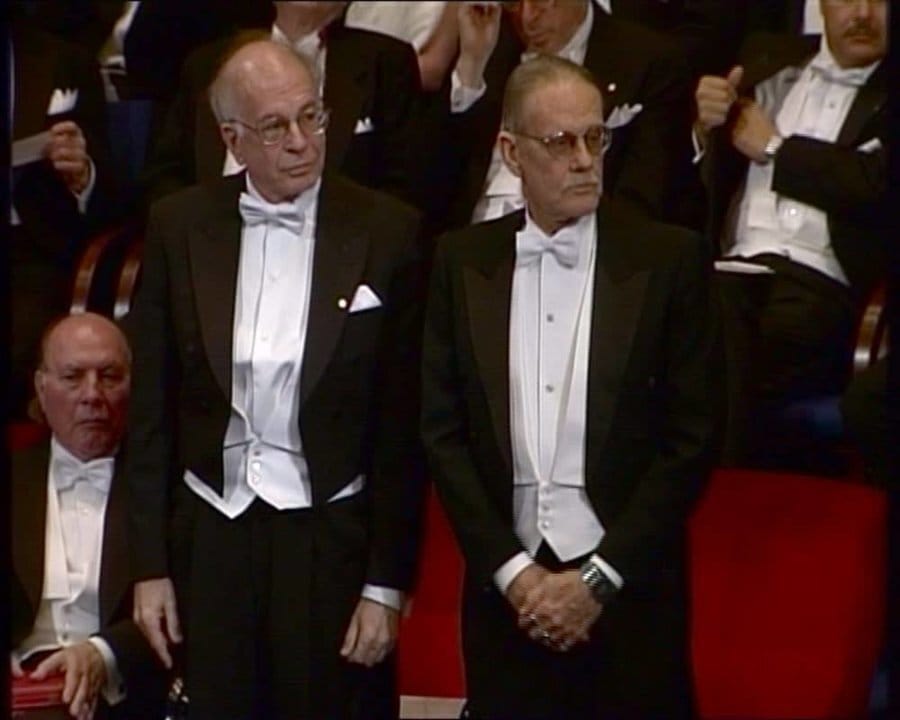- The Weekly Mensch
- Posts
- The Weekly Mensch: Daniel Kahneman
The Weekly Mensch: Daniel Kahneman
An exploration of the life, principles, and the mind of the Master of the Mind
Us in a Nutshell
We are passionate about the lives, the impact, and the experience of Jewish baby boomers who have changed our world. From finance to the arts, we write about the stories of contemporary heroes who — significantly and meaningfully — changed the face of their respective industries, often starting with nothing but a legacy of exile. We tell their stories for the timeless lessons of intelligence, ethics, and resilience they underline. And we also share some fun anecdotes! Nathan Tob is a fourth-year student at the Queen Mary University of London. He studies Economics, Finance, and Management. Davy Sokolski is a third-year student at Columbia University in New York. He studies International Political Economy.
What is a Mensch?
Leo Rosten defines mensch as “someone to admire and emulate, someone of noble character.” Dr. Saul Levine writes in Psychology Today that a mensch’s personality characteristics include decency, wisdom, kindness, honesty, trustworthiness, respect, benevolence, compassion, and altruism.
Daniel’s Rapid Bio

Credit: Princeton University
Daniel Kahneman, born on March 5, 1934, in Tel Aviv, was raised in Paris during World War II before his family returned to Israel. His early experiences with war, uncertainty, and human behavior profoundly influenced his later work. Kahneman studied psychology at the Hebrew University of Jerusalem, earning his bachelor’s degree in 1954 before serving as a psychologist in the Israeli Defense Forces, where he developed methods for assessing soldiers’ personalities and decision-making skills. He later pursued a Ph.D. in psychology from the University of California, Berkeley, in 1961.
Kahneman’s groundbreaking research, particularly in collaboration with Amos Tversky, reshaped our understanding of human decision-making. Together, they developed Prospect Theory, which demonstrated that people do not make rational economic choices but are influenced by biases, emotions, and cognitive shortcuts. Their work laid the foundation for behavioral economics, challenging the long-standing assumption that humans act as perfectly rational decision-makers.
Despite Tversky’s passing in 1996, Kahneman continued advancing the field, culminating in his seminal book Thinking, Fast and Slow (2011). This book popularized his research on System 1 and System 2 thinking—the intuitive, automatic way we make decisions versus the slow, deliberate rational thought process. His insights have influenced fields ranging from economics and finance to healthcare, policymaking, and leadership.
In 2002, Kahneman was awarded the Nobel Prize in Economic Sciences, making him one of the few psychologists to receive the honor. Though his work focused on understanding human irrationality, his contributions have led to more effective decision-making strategies in real-world applications. Beyond academia, he has advised governments, businesses, and financial institutions, showing how cognitive biases shape markets and policies.
Daniel Kahneman passed away on March 27th, 2024. His legacy is one of intellectual humility. He dedicated his life to understanding the flaws in human thinking yet always remained skeptical of his conclusions. His work continues to inspire researchers and leaders to challenge assumptions, question intuition, and strive for clearer, more informed decision-making.
Daniel’s Life Lessons
1. Master your mind, master your future
Kahneman’s groundbreaking research revealed a fundamental truth: our biggest obstacles aren’t external challenges, but the mental traps we set for ourselves. We all like to believe we’re rational decision-makers, yet we consistently fall prey to biases, faulty intuition, and emotional impulses. Kahneman spent decades uncovering how our minds deceive us—how we misjudge risk, overestimate our abilities, and make decisions that feel right in the moment but hurt us in the long run. One of his most famous concepts, the “planning fallacy,” explains why people and businesses so often underestimate costs, timelines, and risks. Time and time again, leaders make the same mistake: assuming their instincts will guide them to success rather than stepping back, questioning their own thinking, and planning with a realistic eye. A powerful example of this played out in Kahneman’s own career. Early in his research, he and his colleagues set out to create a curriculum for Israeli high school students, believing they could complete the project within two years. When they gathered estimates from experts, it became evident that nearly all similar projects had taken at least seven years, with many failing entirely. Even knowing this, Kahneman admitted his team pushed forward with their original timeline—only to find themselves caught in the very bias they were studying. The experience cemented his belief that awareness of our cognitive flaws isn’t enough—we must actively work against them. As he famously put it, “The confidence we have in our beliefs is no measure of their accuracy.”
Mastering your mind means questioning certainty, recognizing when emotions cloud judgment, and avoiding the comforting illusion that we always know best. The ability to manage our biases and emotions is the difference between reactive choices and truly strategic thinking. Kahneman reminds us that success doesn’t come from eliminating doubt, but from harnessing it—turning self-awareness into an asset rather than a limitation.
2. Balance experience and memory
During the 2010 Winter Commencement ceremony at the University of Michigan, Daniel Kahneman delivered a splendid address on human well-being—one of the central themes of his research. He urged graduates to recognize that two distinct selves shape their lives: the experiencing self, which lives in the present, and the remembering self, which constructs the narrative of their lives. Kahneman cautioned against over-relying on the remembering self, which tends to prioritize achievements and the story we tell ourselves and others about success. While ambition and accomplishment provide long-term satisfaction, true well-being also depends on nurturing the experiencing self—being present in moments of joy, connection, and love. He concluded: “There are two selves that you want to keep happy. You don’t want exclusively to worry about the story of your life; you also want an emotionally happy life. It is not always the same thing. There will be trade-offs: there are occasions where you have to choose between a path of ambition that might make you more satisfied and a path of worrying about family that might make you emotionally happier. These choices will be difficult to make because you will suffer from the focusing illusion: you will exaggerate the importance of anything you think about.”
Balance ambition with presence. True fulfillment comes not just from crafting a compelling life story but from fully experiencing it. By giving neither the experiencing self nor the remembering self too much control, we create the equilibrium needed to live a truly meaningful life.
3. Doubt yourself. It’s a strength, not a weakness
Daniel Kahneman spent his life studying the flaws in human judgment, and he was the first to admit that his own thinking wasn’t immune. Unlike many experts who cling to certainty, Kahneman saw doubt as a tool for better decision-making. He constantly questioned his own conclusions, revisited past work, and sought out perspectives that challenged his own. This humility allowed him to refine his theories and uncover deeper insights into how we think. When asked why he hesitated to write Thinking, Fast and Slow, he admitted: “I had serious doubts about my ability to explain these ideas properly.” That doubt didn’t stop him—it made the book stronger. Kahneman’s collaboration with Amos Tversky thrived on this principle. Their ability to challenge each other’s assumptions led to the creation of prospect theory, which reshaped economics and psychology. Their dynamic worked because they never took their own brilliance for granted; instead, they questioned everything, embracing uncertainty as a necessary step toward truth. In a Talks@Google he gave in 2012, Kahneman talked about the flaws of intuition with humor and sharpness, concluding that intuition— including expert intuition —could be boiled down to unconscious recognition of patterns, a major reason for determining when intuition could lead us to be wrong.
We often think confidence is the key to success, but Kahneman’s life proves otherwise. True wisdom comes not from unwavering belief in our own ideas, but from the ability to question them. Doubt isn’t a weakness—it’s a sign that we’re thinking critically, staying open to new information, and growing. Kahneman shows us that the courage to doubt yourself can lead to deeper understanding, better choices, and ultimately, greater success. “Being wrong is the only way I feel sure I’ve learned anything”
The Quote of The Week
“Nothing in life is quite as important as you think it is, while you are thinking about it”


Reply